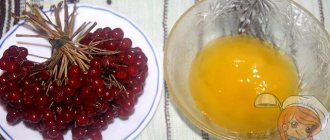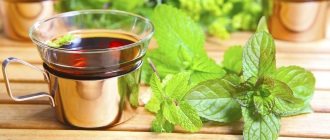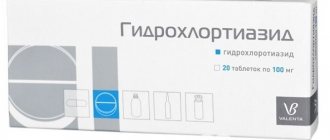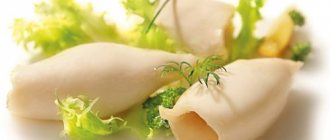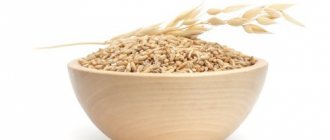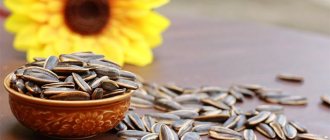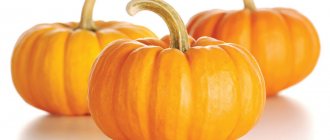Tea was first brought to our country in the 17th century. This drink was expensive, and only rich people - nobles and merchants - could drink it.
Everyone else made do with infusions of herbs, carrot tops, brewed currant leaves and other berry bushes. But after two centuries, tea is consumed everywhere in Russia.
We are so accustomed to this drink that we simply cannot imagine our life without it. Meanwhile, tea cannot be called a uniquely healthy drink; under certain conditions, it can cause damage to the human body.
For example, the question of whether sweet tea increases or decreases blood pressure is often found on forums. We will try to give a detailed answer to it.
Composition and properties
Tea packages always indicate its beneficial properties:
- it tones the human body;
- perfectly quenches thirst;
- has an invigorating effect.
This is publicly known information. But it is worth understanding the details.
This is necessary because we drink tea every day and we simply must know about its properties. It turns out that this drink contains three hundred components, and many of them bring us undoubted benefits.
Scientists have combined tea ingredients into groups, the names of which are:
- tannins;
- pigments;
- vitamins;
- amino acids;
- alkaloids;
- antioxidants;
- microelements;
- essential oils.
Of course, vitamins, antioxidants, and amino acids are useful to us.
They normalize metabolism, rejuvenate the body, and successfully fight atherosclerosis. However, what about alkaloids? Among this group there are elements whose action you should definitely have an idea about.
With high blood pressure
Tea contains caffeine.
What to do if a person suffers from hypertension? Is sweet tea good for high blood pressure, or should you avoid this drink altogether? What effect does caffeine have on blood pressure? To keep it stable and not rise to a dangerous level, patients with hypertension need to follow a diet.
If you have high blood pressure, you should drink tea with great caution, as the drink can harm the body.
Do not think that a diet for hypertension concerns only food; the amount of fluid consumed is also of great importance.
Green tea and blood pressure
The effect of strong sweet green tea on blood pressure varies depending on the state of a person’s health, and as we know, it is different for everyone, different forms of diseases determine what the effect of green tea will be on your body, for some it will have a positive effect, and for others may cause harm.
Japanese experts conducted a study - men and women who had high blood pressure drank green tea for a month. As a result, on average their blood pressure decreased by 8%. And those who did not drink the drink daily, their blood pressure levels did not change.
From this it follows that the way blood pressure behaves when drinking green tea is directly proportional to a number of factors, time, quantity, and type of decoction consumed.
If you drink green tea regularly, it will help reduce the likelihood of developing hypertension by about 59%.
If you still doubt how your blood pressure will behave when drinking green brew, then contact your doctor, who will examine you and give you an accurate answer whether you can drink green tea or not.
Does it increase blood pressure?
Many experiments were conducted on different people, which showed that black tea quickly increases blood pressure.
This is due to the fact that this drink contains caffeine. Due to the content of this substance, black tea stimulates brain cells, supplies them with oxygen, and dilates blood vessels.
All of the above makes it possible to increase blood pressure in a matter of minutes. It is for this reason that it is recommended to drink black sweet tea with low blood pressure.
If such a person has readings on the tonometer below normal, a headache is observed - a cup of freshly brewed tea with sugar will quickly relieve him of the unpleasant symptom.
A cup of strong tea with sugar acts as an effective medicine for hypotension, increases blood pressure, and relieves headaches.
Black tea will also help eliminate drowsiness and loss of energy.
Is it possible to drink strong tea for a hangover?
You shouldn’t drink a lot of tea when you have a hangover, but one cup of black tea can improve your well-being.
Tea for a hangover is gentle, having antitoxic and antioxidant properties, even one cup of tea can remove harmful elements of ethanol breakdown without harm to the body as a whole:
- It is best to use green tea for these purposes; they are most suitable for getting rid of alcohol intoxication.
- You should not drink tea in excessive doses; the caffeine it contains in large quantities can have a negative effect on the cardiovascular system of the body, which is already weakened by intoxication, and can also cause pressure surges.
- Adding rose hips to tea will help replenish vitamin deficiencies and speed up the recovery process.
- Adding St. John's wort will increase the anti-inflammatory properties of the tea itself and have a tonic and antidepressant effect. It is also capable of restoring the gastrointestinal tract system in a short time.
Why does strong tea make you sick?
Black tea can make you feel sick if you drink it before meals.
Black tea can make you feel sick for a variety of reasons; here you need to find the “root” of the problem and solve it so that you don’t have to give up your favorite drink altogether:
- Strongly brewed black tea should not be consumed on an empty stomach; it is better to do it after a meal.
- When tea is infused for a long time for more than 10 minutes, esters and phenols are released, which produces a negative effect and causes nausea.
- Using re-infused tea.
- The combination of tea and alcohol is not the best tandem; it can cause nausea and further consequences.
- The combination of tea and medications is contraindicated. You can only take medications with water, otherwise the side effects of the drugs may adversely affect your well-being.
About the benefits of black tea
Recently, a variety of teas have appeared in stores. In addition to traditional black, we are used to using:
- green;
- hibiscus;
- drink with various fruit additives.
But the first place was and remains for black tea. This is what we will talk about in detail. The tea drinking culture in our country is heterogeneous.
In some families they only drink very strong drinks, often and a lot. In other homes they use it in moderation. How to drink tea correctly so as not to harm your health? Our grandfathers also said that moderation is needed in everything. This also applies to tea.
It has long been proven that moderate consumption of not too strong tea:
- reduces the risk of developing hypertension;
- stimulates the heart;
- has a positive effect on the function of the digestive organs;
- normalizes kidney function.
Some people have found from their own experience that black tea allows them to maintain normal weight for many years.
To get rid of fatigue, many of us just need to drink a cup of hot sweet tea.
Black tea strengthens the walls of blood vessels and improves immunity. The drink is considered an excellent remedy for the prevention of diabetes. Perhaps these are all the positive properties of black tea.
Dentists also claim that black tea is beneficial. If you drink it correctly - not too much, and not too thick, you may never know what caries is. True, there is one nuance here. To remove the yellow plaque that always remains after drinking tea, you need to brush your teeth immediately.
Is it possible to drink strong tea before training?
Tea leaves contain two main alkaloids: tannin and caffeine.
They have the ability to speed up metabolic processes in the body. Tea before training is a guarantee of a well-executed workout on the maximum program:
- Caffeine increases workout intensity and endurance.
- Fats are broken down and the consumption of adipose tissue increases during training due to the positive effects of antioxidants.
You can drink tea after training, but there are some nuances:
- Drinking tea immediately after a workout irritates the gastrointestinal tract and can cause nausea and other undesirable consequences.
- During training, the load on the heart increases; tea, due to caffeine, has an additional effect on the heart.
- Tea is a diuretic and also flushes iron from the body. During training, a person loses both water and vitamins through sweat, so it is necessary to avoid drinking tea.
- You can drink tea 40-60 minutes after training because it contains caffeine.
About the negative properties of the drink
Black tea has its contraindications, and you need to know this information.
Black tea stimulates the nervous system and is not very beneficial for emotionally unstable people.
Weakly brewed tea in small doses will not harm them, but if this rule is not followed, outbreaks of aggression are inevitable.
A strong drink in the afternoon often provokes insomnia. Some people drink tea completely immoderately, not realizing how harmful it is. Neglect of the rules can lead to the development of rheumatoid arthritis and chronic fatigue.
For some diseases and conditions, it is better to avoid drinking black tea altogether.
In addition, too thick tea, consumed in large quantities, actively removes magnesium from the body, which is responsible for the normal state of the nervous system. The drink is harmful for hypertension, gout, glaucoma.
Black tea contains a lot of fluoride. The latter is beneficial only with moderate use. If you do not comply with the norm, fluoride will have a detrimental effect on the function of the thyroid gland, kidneys, and bone tissue.
For children
Is tea good for children? Many parents ask this question. It is better to drink tea without additives and avoid added sugar. Drinking a large amount of tea contributes to the excitability of the child’s nervous system. Therefore, you should avoid giving him tea at night.
The baby may not sleep well after drinking the drink, which also negatively affects the parents. As with adults, you need to know when to stop and not give your child too much tea.
Some nuances regarding the drink
If the tea is steeped, the amount of purines and caffeine in it increases significantly. Such a drink can only bring harm. When you need to take medicine, do not take it with tea.
Black tea with cream or milk is very beneficial
If you have breakfast or lunch, eat your food first and then drink tea after finishing your meal. Food should not be washed down with this drink. If you do the opposite, the contents of the stomach become denser. Food remains in it for a long time.
Black tea with cream and milk is very healthy. This is an excellent tonic for a number of diseases:
- dystrophy;
- polyneuritis;
- exhaustion of the nervous system.
Many people drink black tea without sugar, and this is considered correct.
But if you can’t give up sweets, stick to the norm. Ideally it is 2 tsp. for one glass.
What drinks are good for hypertension?
Paradoxically, weakly brewed black tea reduces blood pressure in hypertensive patients by 5 percent!
However, a system is needed here - up to 3 cups a day for a long time. If you are not sure you will follow the recommendations, drink herbal drinks.
We have already found out that strong black tea with sugar is harmful for high blood pressure. This drink should be replaced with herbal tea. Honey is used instead of sugar, and it is better to eat it as a bite so that it does not lose its beneficial properties.
What herb can be brewed to normalize blood pressure? Tea based on mint and lemon balm relaxes the walls of blood vessels. This leads to a decrease in pressure.
Good honey and herbal infusions are the best way to bring blood pressure back to normal.
If you have hypotension, it is recommended to drink black tea constantly, every 4-5 hours. Why is this particular interval set? It's simple - tea caffeine acts for the specified time. Compared to coffee, it manifests itself faster, works softer and lasts longer.
Benefits and harms
Properly prepared strong tea is very beneficial. However, one should take into account not only the benefits, but also the possible harm from this drink.
What are the benefits of strong tea?
Drinking strong tea has the following positive effects:
- reduces eye inflammation;
- improves kidney and heart function;
- helps normalize metabolism;
- eliminates unpleasant odor in the mouth;
- helps burn extra pounds;
- prevents atherosclerosis and stroke.
Strong black tea contains a lot of caffeine, which serves as a source of substances essential for the body - antioxidants that slow down the aging process.
In combination with citrus fruits (for example, lemon), it improves immunity and serves as an excellent prevention of cancer.
Strong green tea soothes the stomach and helps against nausea, including motion sickness. When consumed regularly, it helps cure stomach ulcers and skin diseases. Black destroys harmful and pathogenic bacteria living in the oral cavity. This permanently removes unpleasant odors, including the smell of cigarettes.
Strong tea is also good for cerebral circulation: it improves blood flow in the vessels of the brain and oxygen delivery to brain cells, preventing strokes, heart attacks, dizziness and migraines.
In this video, Dr. Myasnikov will dispel the shadow of doubt: is strong tea harmful to our health?
Why is strong tea harmful?
Strong black tea is contraindicated for:
- hypertension;
- increased nervous excitability;
- glaucoma;
- gout
Strong tea is bad for the heart. Abuse of it increases blood pressure and increases the risk of developing tachycardia. Green tea contains more substances that affect the walls of blood vessels and poses a greater danger to them than black tea.
Black is more dangerous for those taking anticoagulants such as aspirin.
Hot, strong tea puts a strong strain on the nervous and cardiovascular systems, and also temporarily increases body temperature. Therefore, it should not be given to people who feel unwell, have a high body temperature or have poor resistance to stress.
Another dangerous effect is the leaching of magnesium from the body. A lack of this microelement is fraught with diseases of the nerves, digestive organs, blood vessels and heart, and symptoms such as irritability, agitation, and anxiety.
Consumption on an empty stomach is undesirable, as it provokes painful spasms, and with repeated use, gastrointestinal diseases. A strong tea infusion is contraindicated for people with a sensitive nervous system and glaucoma, as well as for pregnant and nursing mothers.
